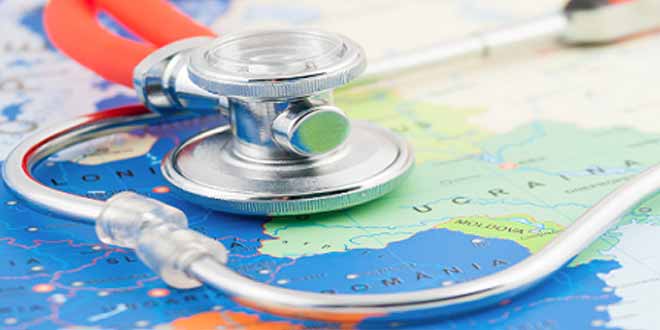
Travelling with Medical Conditions
Life is a package. It comes with happiness and sadness, gifts and difficulties. There are some amazing things and people that become a part of our lives. However, at times there can be medical conditions that accompany us through every thick and thin. They are a part of us just like everything else. Nevertheless, you should not let these things stop you from travelling. Travelling is the essence of life.
“The world is a book and those who do not travel read only one page.” – Augustine of Hippo
For those with special needs and conditions, travelling would require some extra precautions. Once you take these precautions, remember, you are free to roam the landscapes before you and have the time of your life!
Basic Precautions
- Discuss your plan with your doctor: Before you travel, make sure to discuss your plan with your doctor. If you have just recovered from a surgery or a spell from your disease, make sure you wait a few weeks before travelling. Low cabin pressures can cause gas volume expansion. If your doctor recommends you to stay home, then listen to him/her. DO NOT take your medical conditions lightly. Events can wait, life does not.
- Get medical insurance: If your doctor agrees to your plan, make sure you get a good medical insurance. There’s investment better than investing in your own health.
- Get vaccinated: When travelling internationally, visa applications often involve getting vaccinated. However, do your research, and if you feel a certain vaccination has been missed, discuss it with your doctor and get it done. This is extremely important for pregnant women, as they are immune-compromised. Sometimes even while traveling domestically we can be at a high risk of catching a certain disease. For instance measles was quite common in Punjab a year ago, hence before travelling everyone should take the necessary preventative measure.
- Keep your medications in your hand-carry: If you are a chronic patient, it is best to keep your medications closer to you in case of emergency.
- Ask the flight attendants when in trouble: If you feel lack of oxygen, and are breathing heavily, let the flight attendants know, air planes have arrangement of extra oxygen. In case your conditions get worse, the flight attendants can ask a doctor on the flight to help you out.
For Heart Patients
Avoid going to countries with extreme temperatures, as it can put strain on your heart. Make sure to take a walk at the air port to stretch your muscles and increase blood circulation. Sitting at one place can also be harmful and can cause hypoxia, so in case of a long distance traveling, make sure to keep a connecting flight. This can take a bit more time, but do not forget that health is wealth, and it’s worth the effort.
“Make sure when you travel that you have your medicine,” said Winston H. Gandy Jr., M.D., chief medical marketing officer and cardiologist at Piedmont Heart Institute in Atlanta.
If you need special food items (low cholesterol and low sodium), prepare them from home to enjoy a healthy trip. If your trip consists of sports or other such activities, make sure to keep yourself hydrated.
Diabetes Patients
Carry a diabetes ID from your doctor and take extra medication than you normally would. Keep your medication in a sealed plastic bag and remember to keep food items for Hypoglycemia (Low blood sugar).
During the flight, consider doing simple stretching exercises in your seat or moving your ankles in circles and raising your legs occasionally. This will improve your circulation.
Epilepsy
Take your Epilepsy ID and extra medication. Get Rx copies and alert your seatmates and the air plane staff that are with you. Choose your destination with care. Make sure there are good healthcare center around the place where you stay.
Make sure the food buy does not contain added MSG. When travelling to China or Japan, avoid Ginkgo Nuts. Have a balanced diet and remember to exercise to maintain good blood circulation.
Asthma
Get your asthma ID and ask your doctor for an updated action plan for your treatment. If your hotel has feather pillows that you’re allergic to, make sure you talk to the management and ask them to change them. Use a pillow with synthetic filling.
Select to eat or stay in non-smoking environments. You can carry essential medicines of more than 100ml on board, but you’ll need prior approval from the airline and airport and a letter from your doctor or a prescription. Choose destinations with lesser pollution.
Avoid places with high altitudes if your condition is bad. However if you do choose to visit such places, make sure there is a healthcare centre nearby.

